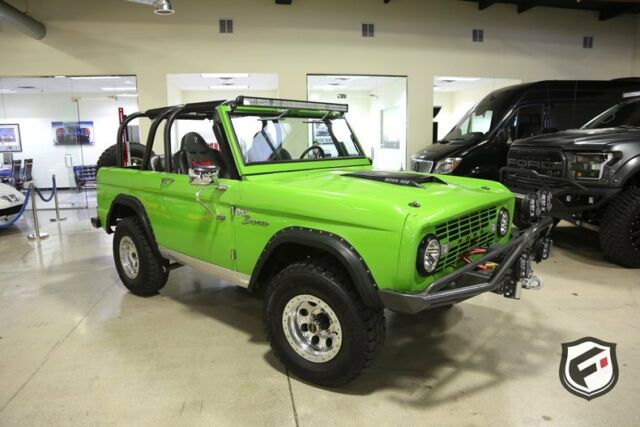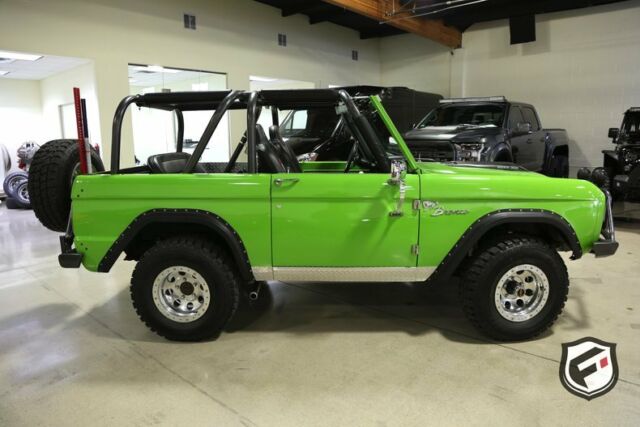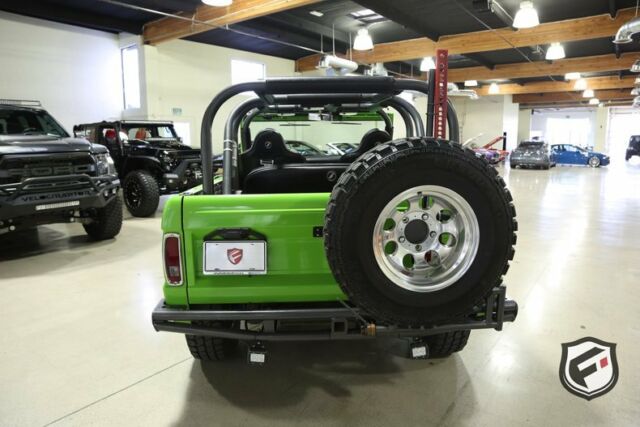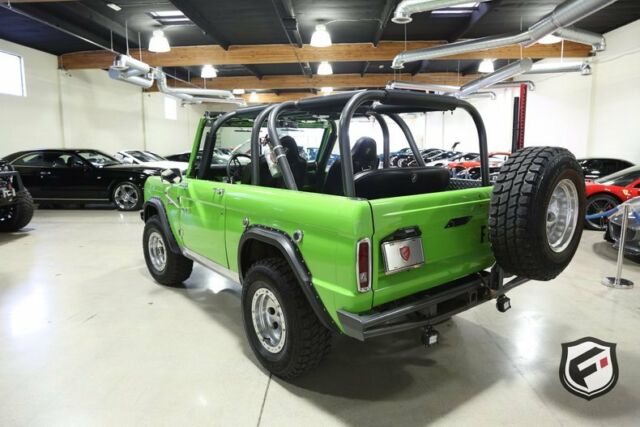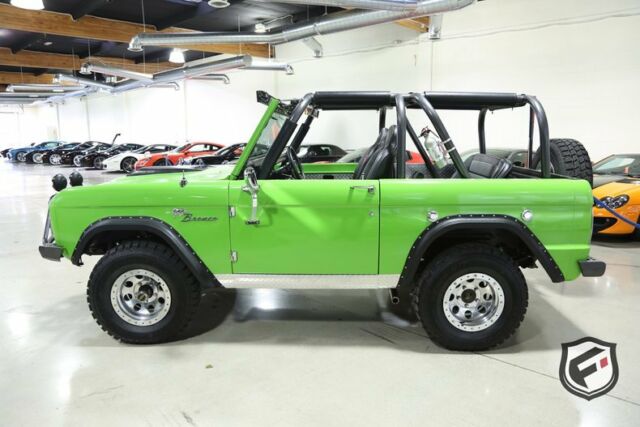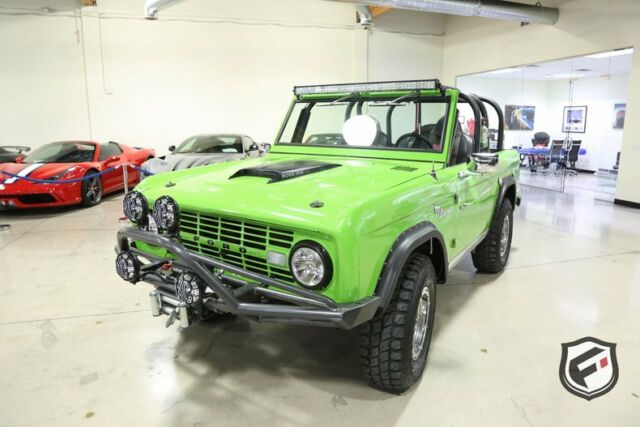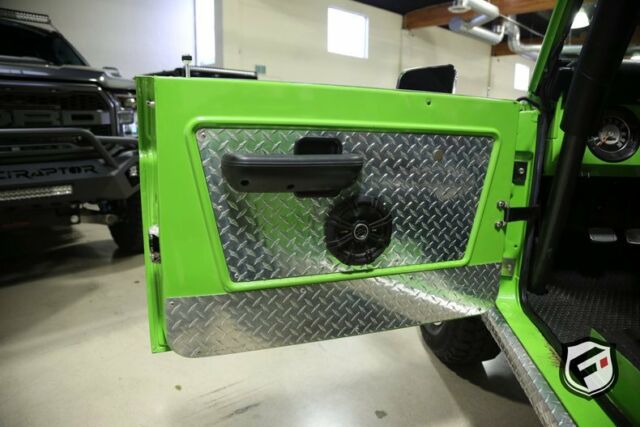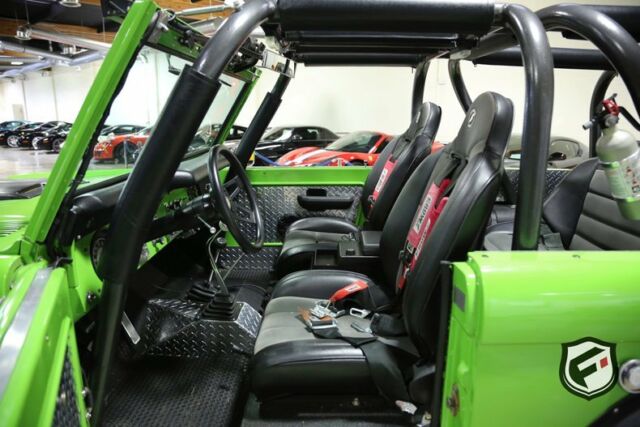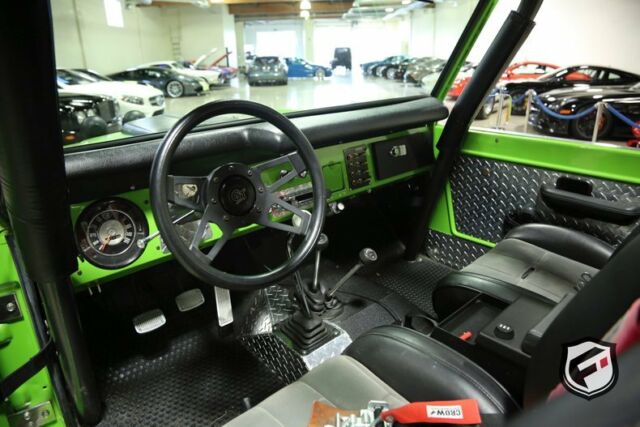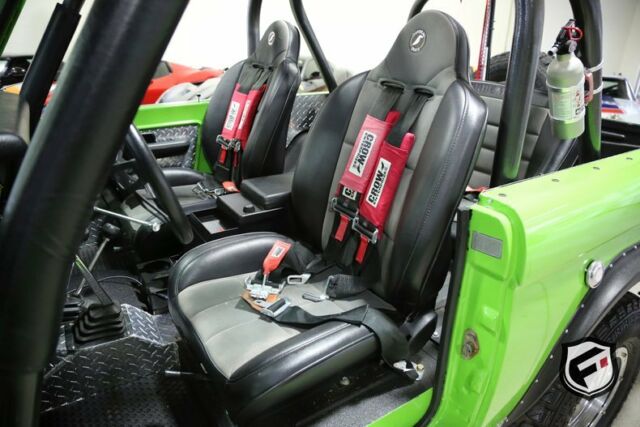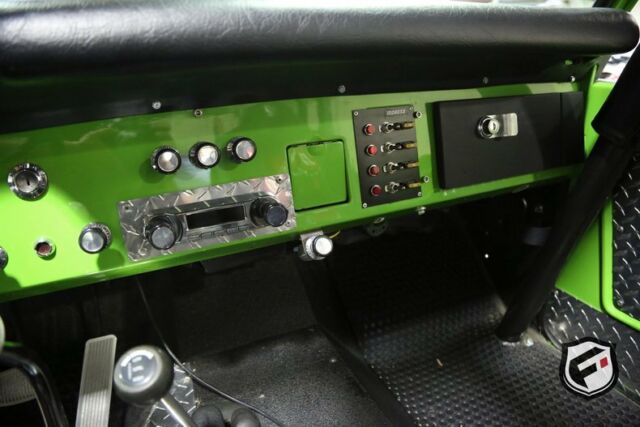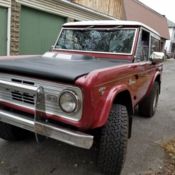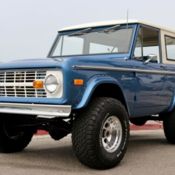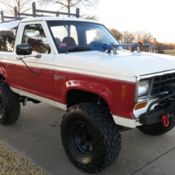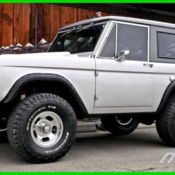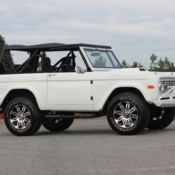1968 FORD BRONCO, BOSS 302 V8, LOTS OF UPGRADES.
Technical specifications of Ford Bronco 1968
| Price: | US $54,950.00 |
|---|---|
| Condition: | Used |
| Item location: | Local pick-up only |
| Make: | Ford |
| Model: | Bronco |
| Doors: | 5 |
| Year: | 1968 |
| Mileage: | 68268 |
| VIN: | U15NLC77522 |
| Color: | Green |
| Engine size: | 302 V8 |
| Transmission: | Manual |
| Interior color: | Black |
| Vehicle Title: | Clear |
| You are interested? | Contact the seller! |
Description
Fusion Luxury Motors | eBay Template- Year: 1968
- Mileage: 68268
- Primary color:
- Transmission type: 3 Speed Manual
- Engine: 302 V8
The Ford Bronco is a model line of SUVs that were manufactured and marketed by Ford from 1965 to 1996. The first generation of the Bronco was introduced as a competitor to compact SUVs including the Jeep CJ-5 and International Harvester Scout.
The first Bronco was assembled using its own chassis and all Broncos were produced with four-wheel drive powertrains.
From 1965 to 1996, Broncos were produced at Ford's Michigan Truck Plant in Wayne, Michigan. In 2017, Ford announced the reintroduction of the Ford Bronco as a mid-size SUV (derived from the Ford Ranger) as a 2020 model; manufacturing is to return to Michigan Assembly.
The idea behind the Bronco began with Ford product manager Donald N. Frey who also conceived the Ford Mustang and engineered by Ford engineer Paul G. Axelrad, with Lee Iacocca approving the model for production. Developed as an off-road vehicle (ORV), the Bronco was intended as a competitor for the Jeep CJ-5 and International Harvester Scout. Today a compact SUV in terms of size, Ford marketing shows a very early example of promoting a civilian off-roader as a "Sports Utility"
The first-generation Bronco is built upon a chassis developed specifically for the model range, shared with no other Ford or Lincoln-Mercury vehicle. Built on a 92-inch wheelbase, the Bronco used box-section body-on-frame construction.
To simplify production, all examples were sold with four-wheel drive; a shift-on the-fly Dana 20 transfer case and locking hubs were standard. The rear axle was a Ford 9-inch axle, with Hotchkiss drive and leaf springs; the front axle was a Dana 30, replaced by a Dana 44 in 1971. In contrast to the Twin I-Beams of larger Ford trucks, the Bronco used radius arms to locate the coil-sprung front axle, along with a lateral track bar, allowing for a 34-foot turning circle, long wheel travel, and anti-dive geometry (useful for snowplowing). A heavier-duty suspension system was an option, along with air front springs.
At its August 1965 launch, the Bronco was offered with a 170 cubic-inch inline-6. Derived from the Ford Falcon, the 105 HP engine was modified with solid valve lifters, a 6 quart oil pan, heavy-duty fuel pump, oil-bath air cleaner, and a carburetor with a float bowl compensated against tilting. In March 1966, a 200 HP 289 cubic-inch V8 was introduced as an option. For the 1969 model year, the 289 V8 was enlarged to 302 cubic inches, remaining through the 1977 model year. For 1973, a 200 cubic-inch inline-6 became the standard engine, offered through 1977.
To lower production costs, at its launch, the Bronco was offered solely with a 3-speed column-shifted manual transmission, with a floor-mounted shifter later becoming an option. In 1973, in response to buyer demand, a 3-speed automatic transmission became offered as an option.
In a central theme of the first-generation Bronco, styling was subordinated to simplicity and economy, so all glass was flat, bumpers were straight C-sections, and the left and right door skins were symmetrical.
For 1966, three body configurations were offered, including a 2-door wagon and half-cab pickup, and open-body roadster. At its $2,194 base price, the Bronco included few amenities as standard. However, a large number of options were offered through both Ford and its dealers, including front bucket seats, a rear bench seat, a tachometer, and a CB radio, as well as functional items such as a tow bar, an auxiliary gas tank, a power take-off, a snowplow, a winch, and a posthole digger. Aftermarket accessories included campers, overdrive units, and the usual array of wheels, tires, chassis, and engine parts for increased performance.
For 1967, Ford introduced the Sport option package for the Bronco wagon. Consisting primarily of chrome exterior trim and wheel covers, the Sport package was distinguished by red-painted FORD grille lettering. For 1970, the Bronco Sport became a freestanding model rather than an option package.
This Bronco has many features and upgrades, bucket seats, roll cage, bigger wheels and tires, aftermarket lighting for visibility during the night, separate kill switch, center console with a lock, new sound system and new speakers, the engine has been upgraded to a 302 V8.
The truck sounds and drives extremely well and is definitely a great value for the price as bronco's are rising in price all over the country.
Great lease rates and Financing also available on any of our inventory!
Buy Sell Trade Consignments Welcome!
Please email [email protected] or call 1-818-773-8181
- 20837 Nordhoff St,
Chatsworth, CA, 91311, US - (818) 773-8181
- [email protected]
- www.fusionluxurymotors.com
- View our other auctions
- Email to friend
